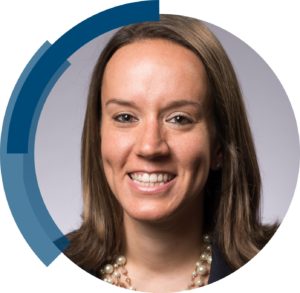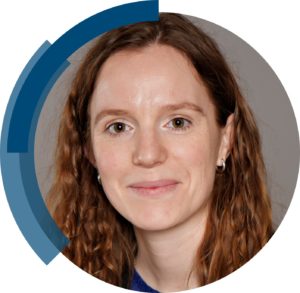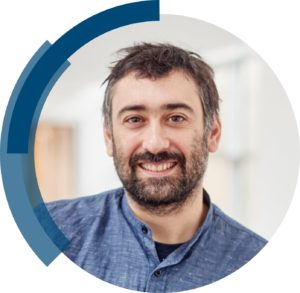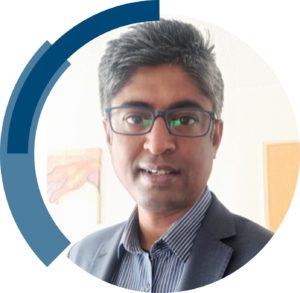On behalf of the ChemComm Editorial Board, we are pleased to announce the winner of the 2022/23 ChemComm Emerging Investigator Lectureship – Josep Cornella! Our warmest congratulations to Josep!
Josep Cornella join recent past winners Keary Engle (2021), Thomas Bennett (2021) and Bill Morandi (2020). Learn more about Josep below.
Josep Cornella (Pep) is a Max Planck Group Leader in the Department of Organometallic Chemistry at the Max-Planck-Institut für Kohlenforschung in Mülheim an der Ruhr, Germany. He received his PhD in 2012 from Queen Mary University of London, where he worked with Prof. Igor Larrosa on the use of aromatic carboxylic acids as aryl donors in metal-catalyzed decarboxylative reactions. He then moved back to Catalunya as a Marie Curie Postdoctoral Fellow with Prof. Ruben Martin (ICIQ) and further received a Beatriu de Pinós Fellowship in 2015 to carry out further postdoctoral studies in the group of Prof. Phil S. Baran at The Scripps Research Institute, California, USA.
He joined Max-Planck-Institut für Kohlenforschung in spring 2017 and in summer of the same year, he obtained a Max Planck Research Group Leader (MPRGL) position in the same Institute to create and lead the Sustainable Catalysis Laboratory. His research group interests span from the invention of new catalytic transformations to the design of novel catalysts to uncover previously unknown pathways. You can learn more about Josep’s group and his research on Twitter @CornellaLab
As part of the Lectureship award, Josep will be presenting lectures over the coming 12 months. Details of the lectures will be announced in due course but keep an eye on Twitter @ChemCommun for details!
Highly Commended Nominations
Each year, a large number of excellent researchers gets nominated for the ChemComm Emerging Investigator Lectureship award. Due to the extremely high standard of nominations this year, we have decided to select a number of Highly Commended candidates, who the Editorial Board highlighted as performing exceptional science and deserving of recognition in the community.
|
|
Shoubhik Das received his PhD from the group of Prof. Matthias Beller in the Leibniz Institute of Catalysis (LIKAT), Germany. After finishing his PhD, he joined the group of Prof. Matthew Gaunt at the University of Cambridge for postdoctoral fellowship’ followed by working with Prof. Paul Dyson in EPFL, Switzerland. In August 2015 he received the ‘Liebig Fellowship’ to start his independent research career at the University of Göttingen, Germany. Followed by this, he accepted the Assistant Professor position in the Department of Chemistry at the University of Antwerp, Belgium in November 2019. In August 2023, he will be joining as the full professor in the Department of Chemistry at the University of Bayreuth, Germany. Follow Shoubhik’s research on Twitter @shoubhikdas4 |
|
 |
Ellen Matson obtained her PhD from Purdue University under the supervision of Prof. Suzanne C. Bart studying the synthesis of low-valent uranium alkyl complexes. Subsequently, Ellen performed postdoctoral research with Prof. Alison R. Fout at the University of Illinois at Urbana Champaign. Ellen began her independent career at the University of Rochester in 2015; the Matson Laboratory studies the synthesis and reactivity of metal chalcogenide clusters as model systems for surfaces and redox active metalloligands. Ellen has received multiple awards recognizing her research accomplishments as an independent investigator; these include a Sloan Research Fellowship (2019), a Cottrell Award (2019), and the Camille Dreyfus Teacher-Scholar Award (2020). Most recently, Ellen was named the Kavli Foundation Emerging Leader in Chemistry (2022). Follow Ellen’s research on Twitter @MatsonLab |
|
 |
Sophie Rousseaux obtained her PhD from University of Ottawa working with Prof. Keith Fagnou on Pd-catalyzed aliphatic C–H bond functionalization reactions. In 2010, she moved to MIT to complete her graduate research with Prof. Stephen L. Buchwald. She was a NSERC postdoctoral fellow and Glasstone Research Fellow at University of Oxford from 2012–2015, where she worked with Prof. Harry L. Anderson. Sophie joined the Department of Chemistry at the University of Toronto in 2015 where she currently is an Associate Professor and also holds a Canada Research Chair (Tier 2) in Organic Chemistry since 2016. Her group’s research interests include organic synthesis, catalysis, and organometallic chemistry, with a particular focus on the synthesis of small rings and nitrile-containing molecules. Her group’s work has been recognized by several awards including the CSC Keith Fagnou Award (2023), the McLean Research Fellowship (2022), the Organic Letters Outstanding Publication of the Year Lectureship (2022), a Sloan Research Fellowship (2021), an Ontario Early Researcher Award (2021), and the Dorothy Shoichet Women Faculty Science Award of Excellence (2020). Follow Sophie’s research at @RousseauxGroup or her department’s Twitter handle @chemuoft |
Keep up-to-date with our latest journal news on Twitter @ChemCommun or via our blog! Learn more about ChemComm online!
Sign up for a Chemistry Briefing: if you would like to stay informed about new resources and publishing updates, please opt in to our email newsletter.












